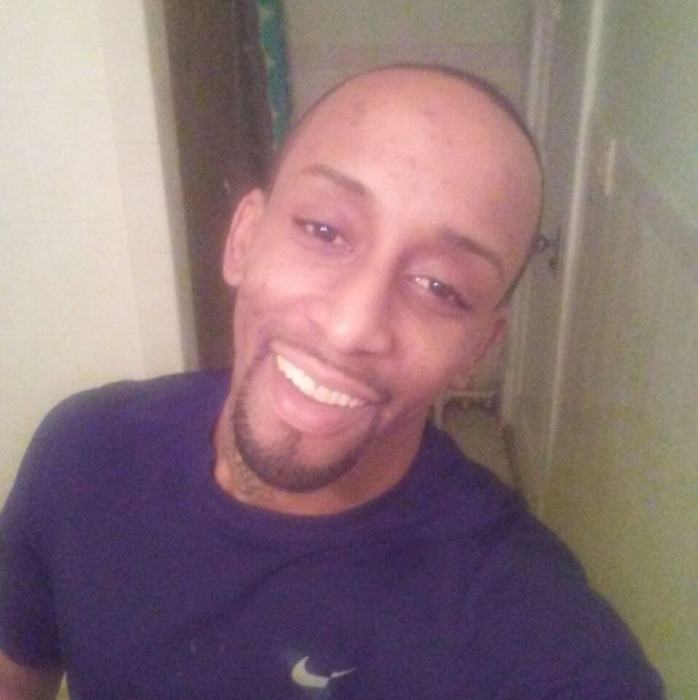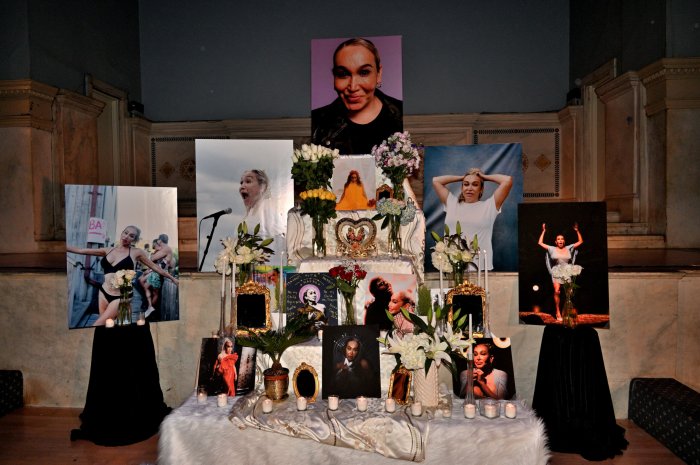Defendant Renato Seabra, victim Carlos Castro, and Wanda Pires, a longtime friend of Castro's and a key prosecution witness. | MANHATTAN DISTRICT ATTORNEY'S OFFICE
Testifying for the prosecution in the trial of Renato Seabra, the accused killer of Carlos Castro, a homicide detective told the jury that the defendant never said he was acting on instructions from God when he killed Castro in a Manhattan hotel room in 2011.
“Now, during this statement, did Mr. Seabra ever mention God?” Maxine Rosenthal, the assistant district attorney who is prosecuting the case, asked Richard Tirelli, a detective in the police department’s Manhattan South Homicide unit, on October 16. Tirelli said, “No.”
“Did he tell you that God told him to beat and stomp and mutilate and kill Mr. Castro?,” asked Rosenthal, who is assisted by Jung Park, also an assistant district attorney. Tirelli said, “No, he did not.”
The defense admits that Seabra killed the 65-year-old Portuguese TV personality, but his attorneys assert that Seabra was psychotic during and after the attack and believed he was acting on instructions from God when he killed Castro.
Following the killing, Seabra showered, dressed in a suit, and wandered Midtown Manhattan touching people to cure them, his attorneys have said. The defense argues Seabra was insane when he killed Castro and cannot be held legally responsible.
The killing took place on January 7 of last year. Tirelli and two other detectives interviewed Seabra in a Bellevue Hospital psychiatric ward on January 8, roughly 36 hours later. Seabra cut his wrists with a broken wine glass following the killing.
Seabra faces a single count of second-degree murder and could get a maximum sentence of 25-years-to-life if convicted. The prosecution alleges that Seabra killed Castro in a rage after the older man ended their relationship and said they were returning to Portugal early from their New York vacation.
With the trial’s outcome hinging entirely on the younger man’s state of mind, the defense has battled, sometimes successfully, to keep the jury from hearing evidence that suggests that Seabra was something other than out of his mind. The statement to police was not excluded, so the defense attacked Tirelli’s reliability.
Tirelli has been with the New York City Police Department for 29 years, serving 21 as a detective, and said he has never videotaped or audiotaped a defendant’s confession. The statement was put together from notes Tirelli took during the interview. While Seabra approved the notes, he never saw the final version.
Defense attorney David Touger. | GAY CITY NEWS
“So he never signed off on what you just read to this court?” asked David Touger, who represents Seabra. Tirelli said, “No.”
“He never said he killed Carlos Castro because Carlos Castro wanted to break up with him, correct?” asked Touger, who is assisted by Rubin M. Sinins. Tirelli said, “Yes.”
“Did you ask him did God tell you to do this?” Touger asked. Tirelli said, “No.”
“You just wanted your confession,” Touger said. Tirelli said, “I wanted the truth.”
In their direct and cross-examinations followed by multiple re-directs and re-crosses, the attorneys grew increasingly heated in their questions and objections as they battled over the meaning of the defendant’s statement.
Early in the statement, Seabra told police he “was struggling with his self and his homosexual identity and demons, which started to cause some difficulty in their relationship.”
Later, the statement says, “[H]e proceeded to take the corkscrew and cut Mr. Castro’s testicles because they were the demon and he needed to cut it out.”
In the defense recounting, the demons were in Castro’s testicles and Seabra was engaged in a ritual when he cut them out of Castro’s body, put one on each of his wrists, and then, apparently, carefully placed one roughly four feet from the body and the other roughly six feet from the body in the cramped hotel room the two men shared.
The prosecution’s story is that Seabra was “enraged” that the relationship was ending and so was Seabra’s chance at the modeling career Castro was going to help him with. The story about God and demons is malingering in the prosecution’s tale.
“In fact, you knew the why, didn’t you?,” Rosenthal asked Tirelli after Touger repeatedly pressed him on why he had not inquired further into Seabra’s motivation. Tirelli said, “Yes.”
After the questioning ended, Touger fired a final salvo at Tirelli saying, “When he gets a psychiatric degree, I’ll come back and talk to him.”
The trial continued on October 17.


































